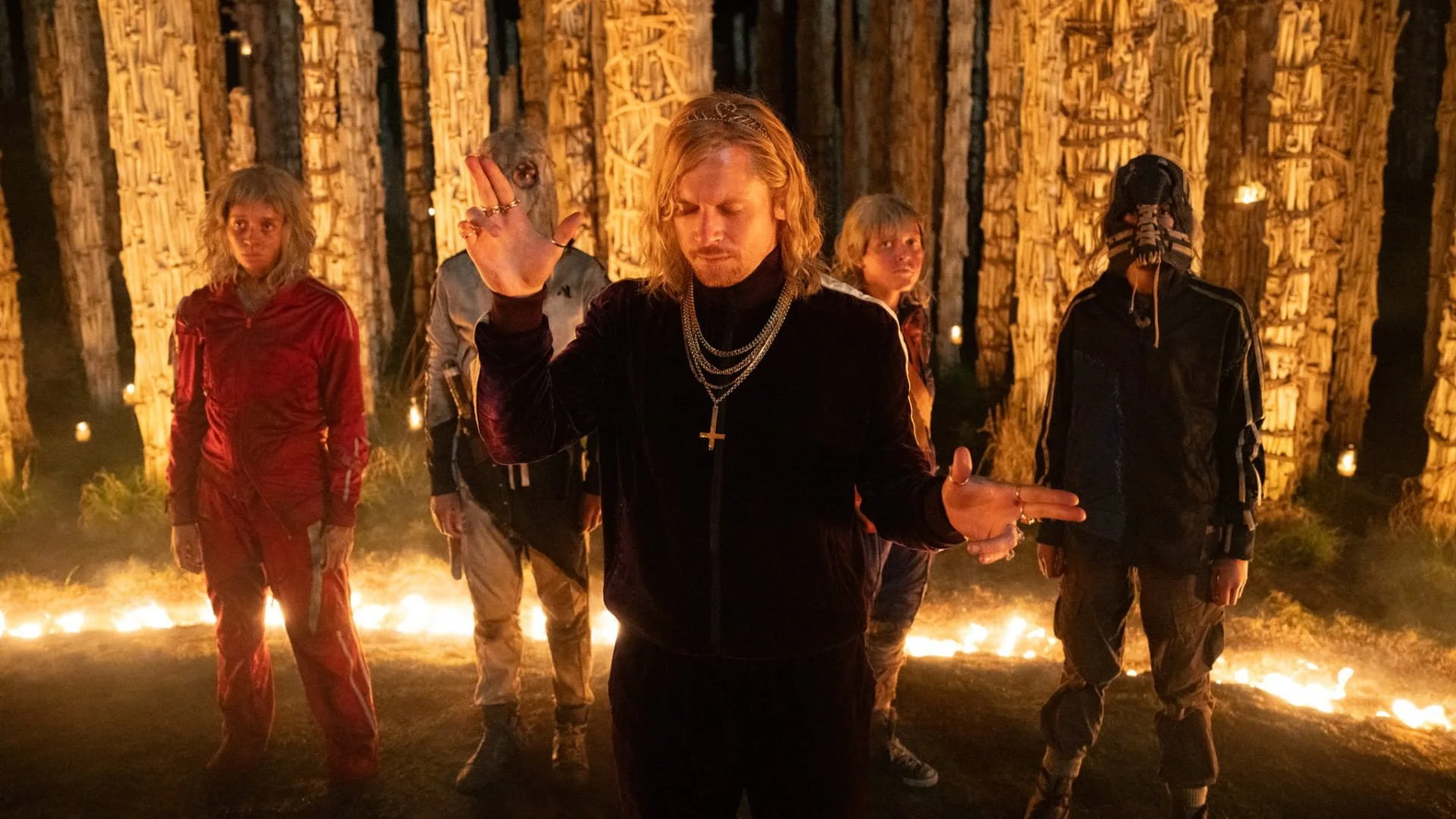TIFF22: The Eternal Daughter
Joanna Hogg makes personal films. Not that other filmmakers don’t—they wouldn’t make movies for a living if they didn’t put something of themselves in their work. But Hogg takes it to another level, with her films acting as much as therapeutic exercises as fictional narrative works.
The British indie filmmaker has enjoyed her highest profile success over the past few years with her two autobiographical works, The Souvenir in 2019 and The Souvenir: Part II in 2021. Both films chart the development of a young filmmaker and draw on Hogg’s own experiences in the 1980s when she was an emerging director. Now Hogg has made The Eternal Daughter, another film about mothers and daughters starring Tilda Swinton (like The Souvenir films) and another film that taps into her own biography—and more importantly, her own anxieties as a daughter and an artist.
Filmed during the pandemic and set entirely at an old manor hotel in Wales, The Eternal Daughter is a ghost story, but the ghost that haunts the film is Hogg’s own mother. In the film, Tilda Swinton plays Julie, a filmmaker who is taking her mother, Rosalind (also Swinton in old-age makeup), to Wales for her birthday to stay in a manor hotel that she spent a lot of time in as a child. If you’ve seen The Souvenir films, you’ll know the characters share names with the mother and daughter in those films (Swinton played the mother in those ones, with her real life daughter, Honor Swinton Byrne, playing her daughter). So this film plays with self-reflexivity on many levels. It’s a portrait of Hogg’s own relationship with her late mother (who died while she was editing the film) and Hogg’s relationship with Swinton, as well as her own relationship with her work. It’s a drama, but also a self-portrait, a ghost story, but mostly about the ghosts of the director’s past.
The plot is minimal, but sounds like something straight out of an English Gothic ghost story. Passing through fog-draped woods with Louis, their beloved springer spaniel, in tow, Julie and Rosalind check into the old manor hotel late at night. They seem to be the only guests. During the day, Julie tries to start work on a new screenplay about her relationship with her mother and frets over her at meals. Meanwhile, Rosalind reminisces about past days in the manor. At night, Julie cannot sleep, as the cricks and cracks of the old building keep her awake. Eventually, she wanders the hotel at night, trying to find the source of the sounds, and thinks she spies a ghostly face in one of the windows.
With a set-up like this, you expect the other shoe to drop, but it never does, which can be frustrating if you’re looking for narrative resolution or Gothic scares. But Hogg is not interested in making a horror movie. To be clear, the atmosphere is creepy. Hogg plays with reflective surfaces, shoots through old window panes, and uses a score of mostly flute music playing on the work of Hungarian composer Béla Bartók to create a tense and choked atmosphere. The sound design is particularly effective, with each crick and crack playing with our minds and transforming the manor into a haunted house. The 16mm cinematography gives it the look of an old photograph and accentuates the texture of the old estate and the fog-draped grounds. It’s unsettling—Rosalind even uses the word early in the film—and occasionally creepy and tense, but not scary.
Rather, the film is a work of autofiction, through and through, allowing Hogg to process some of her own anxieties over mining her real life and her relationship with her mother in her work. She channels these anxieties through Swinton, her most significant collaborator, who plays both roles and who puts a significant amount of herself in the work as well, using the dual performances as a kind of dialogue with herself. Hogg crafts many of her scenes and dialogue through on-camera improvisation. Thus, the characters and the scenarios could be said to be as much Swinton’s creations as Hogg’s. Louis, the spaniel, is even Swinton’s pet in real life. With The Eternal Daughter, you sometimes don’t know where the artists’ lives end and the characters’ lives begin.
If you’re an admirer of Hogg or Swinton, you’ll find a lot of artistic avenues to dig into in The Eternal Daughter. There’s a genuine sadness that washes over everything here as it’s a work that speaks from the heart. But it’s also quietly funny, in that dry, distinctly English way. As Julie, Swinton processes Hogg’s feelings of guilt over mining her biography and making her mother a character in her work. As Rosalind, Swinton allows Hogg to pay tribute to her mother’s memories. Together, the two performances act as a kind of unified artistic statement towards her feelings on her mother, both a tribute and a confession, like a personal letter.
But I have to confess, I wonder whether Hogg made the film more for herself than for a potential viewer. The actual narrative is so slight, that despite the aesthetic and emotional pleasures of watching Swinton act opposite herself and explore the manor, the significance seems muted. The entire effect feels twice-removed, like we’re watching someone else watch a movie and experience its catharsis. Perhaps that’s enough. For many people, such a simple act of naked empathy is what they look for in art. There’s value in this therapeutic approach to cinema. But with such a promising setup, I confess that I wish there was a bit more horror in this Gothic ghost story. There’s great value to art as self-reflection, but there’s value in genre storytelling as well, and no reason you can’t satisfy the latter while performing the former.
6 out of 10
Written and directed by Joanna Hogg; starring Tilda Swinton.



This mockumentary starring Matt Johnson and Jay McCarrol is a complex metafiction farce and a loving portrait of friendship and Toronto.